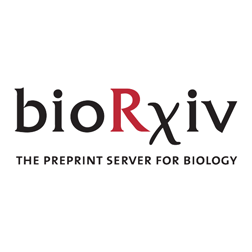
Imogen Franklin
@ImogenFranklin6
Followers
124
Following
228
Media
4
Statuses
30
@DiMeN_DTP PhD student investigating the progression of mitochondrial disease 👩🏻🔬🧬 | @MitoResearch
Joined December 2021
Proud to see this work published and really excited to have my first, first author publication!! Thanks to an amazing team!
0
4
18
Absolutely over the moon to have passed my PhD viva last week! Thank you to my examiners for a great discussion @RyanLab_MBU and Jim Stewart and my fab supervisors @sarahjpickett, Ollie and Matt for their support over the last 4 years. Excited to see what the next chapter brings!
2
3
35
🚨Looking for a postdoc! 🚨Excited to recruit a computational researcher to join my lab @YaleGenetics and work on exciting projects in human & mitochondrial genomics, building tools to link genetic variation to disease. Enquiries welcome! Details 👉
0
6
11
Excited to share a preprint from my PhD work at @taylorlabncl. In this work, we characterised the pathological role of human COA5 in the early stage of mitochondrial complex IV assembly through complexome profiling. https://t.co/jKr1gADYB4 A huge thank you to all collaborators!
medrxiv.org
Pathogenic variants in cytochrome c oxidase assembly factor 5 (COA5), a proposed complex IV (CIV) assembly factor, have been shown to cause clinical mitochondrial disease with two siblings affected...
1
10
18
Wearing blue for #WorldParkinsonsDay2024! Proud to be working in this great team researching Parkinson's - check out some of our latest work identifying reduced circRNA expression in early-stage Parkinson's patients here -> https://t.co/tuRQr1cqbE
@DiMeN_DTP @MichaelJFoxOrg
0
4
14
Really enjoying my first ever immunometabolism conference. Thanks to everyone who came to chat at my poster last night! @KeysSymp #immunometabolism
1
4
20
Learned so much over an incredible four days at #RNAUK2024 and am so excited to have been awarded the best postdoc talk award. Grateful to have had the opportunity share my work from @WredenbergLab @MolMet_KI with a broader RNA biology audience! Thank you @BCI_RNAHUB!
5
4
38
Check out out latest work looking at circRNAs in PD: https://t.co/qhDhKA8l38 -> @b_whittle's first manuscript! Huge thanks to @AlisonYarnall @rachellawson85 @4130chromo @osagie_izuogu @AngPH09 and everyone at @MichaelJFoxOrg, @realmikefox and @ParkinsonsUK
1
9
24
Interested in mitochondria, muscle and innovative imaging techniques? Want to do a PhD? We are looking for a motivated person to take up a PhD position with @UniofNewcastle with @mitomusclelab @bioImaging_NCL and @EMRSncl. Apply here https://t.co/AVrJjhbjVu
@nuact_NCL DM for info
2
44
56
Very happy to share my first paper from the McBride lab @mitodynamics revealing that mitochondrial DNA (mtDNA) can escape into cytosol through “leaky lysosomes” and cause pyroptotic cell death. (1/9) https://t.co/sxJ5C3u2WI
biorxiv.org
Inflammation is an age-related factor that underlies numerous human disorders. A key driver of inflammation is the release of mitochondrial DNA (mtDNA), which binds and activates cytosolic sensors....
9
31
108
Parkinson's genes orchestrate pyroptosis through selective trafficking of mtDNA to leaky lysosomes https://t.co/tUYcVq70xK
#biorxiv_cellbio
0
9
17
The Newcastle Mito Team @UniofNewcastle @NewcastleHosps were delighted to come together with everyone for the @4Lilyfoundation Family Weekend! A huge thank you to the Lily Team for organising such an amazing event - it was lovely to catch up with our incredible mito community.
0
4
26
Anyone in the Newcastle area able to act as a listener for my PhD study? You’ll be required to attend a Newcastle Uni building. It will only take around 20mins of your time. Cannot have any experience talking to people with speech disorders.
1
8
6
Incredibly proud of Imogen Franklin from the WCMR @UniofNewcastle who is presenting her PhD research @Euromit2023 today 💚 @DiMeN_DTP #mito #meeting #teamnewcastle
2
4
31
Our girl @ImogenFranklin6 smashing it talking about mtDNA mutations in the blood #Euromit2023
0
6
19
Excited to be attending my first ever euromit! I’ll be presenting my PhD work on selection against pathogenic mtDNA variants in session 1.1 tomorrow afternoon. Can’t wait to see everyone there! #euromit2023
0
8
20
Very happy to share a study from my PhD characterising astrocytic pathology in #Alpers syndrome and #POLG disease, published today in Acta Neuropathologica Communications! https://t.co/ly07WdJKay
actaneurocomms.biomedcentral.com
Refractory epilepsy is the main neurological manifestation of Alpers’ syndrome, a severe childhood-onset mitochondrial disease caused by bi-allelic pathogenic variants in the mitochondrial DNA...
2
5
17
Thank you to all of our collaborators and the large number of funders who have made this research possible @sarahjpickett @MitoResearch @DiMeN_DTP @HI_Lab_NCL @wellcometrust
0
2
3
Investigating the mechanisms of this selection will aid in understanding the role of mitochondria in T cell differentiation as well as identifying potential drug targets in the treatment of mitochondrial disease, for which there is no cure.
1
2
3
This is supported by a reduced proportion of T-cells in m.3243A>G carriers, indicating the presence of pathogenic mt-tRNA variants can disrupt T cell homeostasis.
1
2
3














